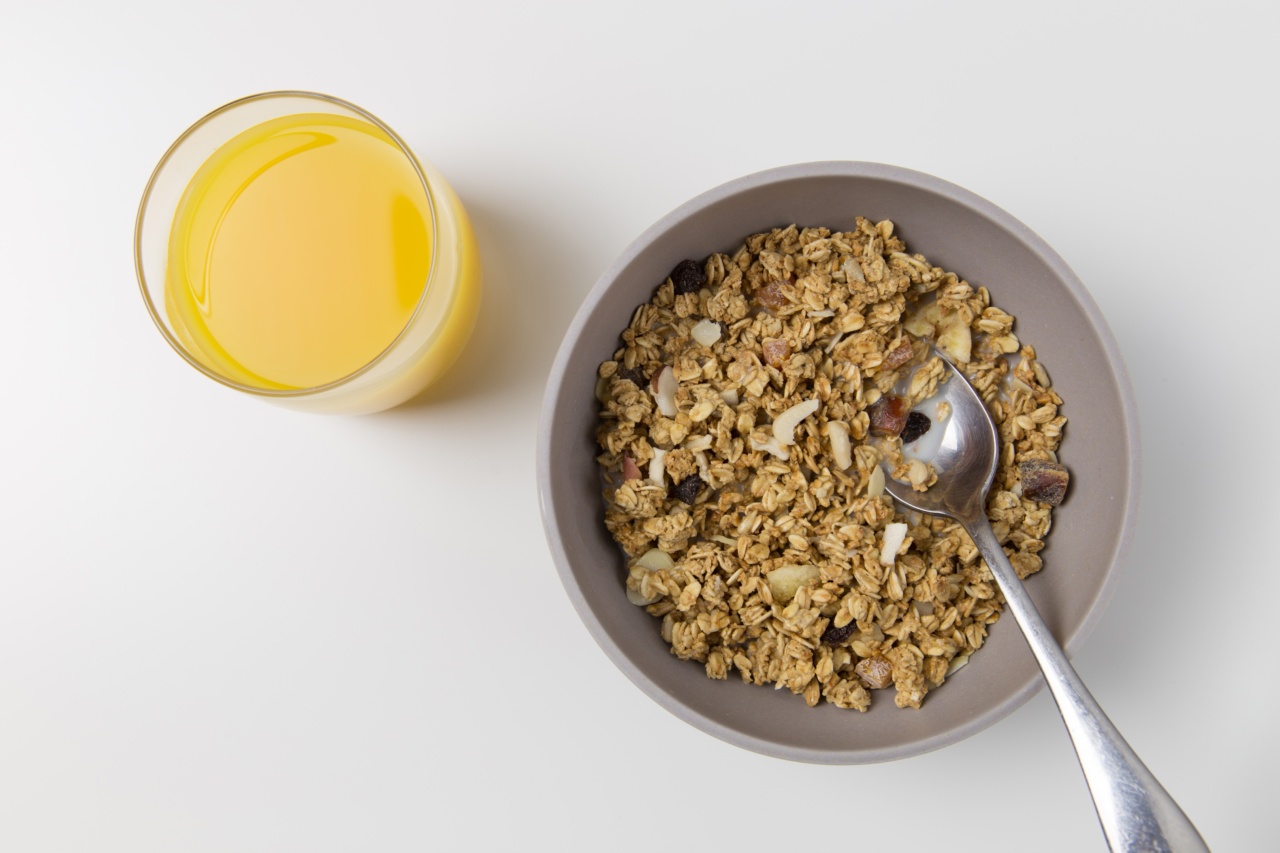Fiber is an essential nutrient that our body needs to function properly. It is a type of carbohydrate that cannot be digested and absorbed by our body.
Instead, it passes through our digestive system, helping to maintain bowel regularity and promoting overall health. Fiber is commonly found in fruits, vegetables, nuts, seeds, and whole grains. Here are 10 health benefits of a high-fiber diet.
1. Promotes Digestive Health
Fiber plays a crucial role in maintaining digestive health. It adds bulk to the stool, aiding in its movement through the intestines and preventing constipation.
Eating a high-fiber diet can help prevent digestive disorders such as irritable bowel syndrome (IBS), diverticulosis, and hemorrhoids.
2. Lowers Cholesterol Levels
High levels of LDL (bad) cholesterol in the blood increase the risk of heart disease. Soluble fiber found in oats, beans, fruits, and vegetables can help lower LDL cholesterol levels.
It does this by binding to cholesterol in the digestive system and promoting its elimination from the body.
3. Regulates Blood Sugar Levels
Fiber helps regulate blood sugar levels by slowing down the absorption of sugar into the bloodstream. This helps prevent spikes in blood sugar levels and reduces the risk of type 2 diabetes.
Fiber-rich foods such as oats, beans, and whole grains are ideal for people with diabetes as they provide sustained energy without causing blood sugar spikes.
4. Helps with Weight Management
Fiber-rich foods are bulky and filling, keeping you full for longer periods. This reduces your calorie intake and helps you maintain a healthy weight. Eating a high-fiber diet can also help prevent overeating and reduce the risk of obesity.
Studies have shown that people who eat more fiber tend to have a lower body weight.
5. Reduces the Risk of Cancer
Fiber has been found to have a protective effect against certain types of cancer such as colorectal cancer. This is because fiber helps to remove wastes and toxins from the body, preventing them from accumulating and causing damage to cells.
High-fiber diets have also been linked to a reduced risk of breast, ovarian, and prostate cancer.
6. Improves Heart Health
Fiber is essential for heart health. It has been found to lower blood pressure, reduce inflammation, and improve blood vessel function. These factors contribute to a lower risk of heart disease.
Foods high in fiber such as fruits, vegetables, and whole grains are also rich in vitamins, minerals, and antioxidants that protect the heart.
7. Promotes Skin Health
Fiber plays a vital role in promoting skin health. It helps remove toxins and waste from the body, preventing them from accumulating and causing skin problems such as acne and pimples.
Fiber-rich foods are also a good source of antioxidants that protect the skin from damage caused by free radicals.
8. Boosts Immune System
Fiber is a prebiotic, meaning it provides food for the beneficial bacteria in our gut. These bacteria play a crucial role in maintaining our immune system.
Eating a high-fiber diet promotes the growth of beneficial bacteria, improving our immune system’s response to infections and diseases.
9. Improves Brain Health
Fiber has been found to have a beneficial effect on brain health. It helps reduce inflammation and oxidative stress, which are factors that contribute to cognitive decline.
Eating a high-fiber diet has been linked to a lower risk of dementia and Alzheimer’s disease.
10. Increases Longevity
Fiber-rich foods are associated with increased longevity and a lower risk of premature death. Eating a high-fiber diet has been found to reduce the risk of death from heart disease, cancer, and respiratory disease.
It also promotes overall health and well-being, improving the quality of life in older adults.





























